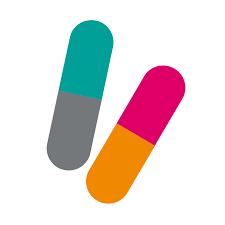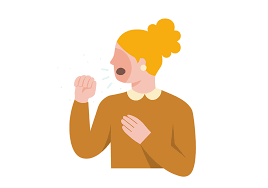Risperdal is a medication that is commonly prescribed to treat patients with Obsessive-compulsive disorder or OCD. If you are struggling with OCD, it is important to seek treatment. Risperdal can be an effective way to manage the symptoms of OCD and help you live a more productive life. In this blog post, we will discuss the benefits of using Risperdal for OCD and how it can help you address your condition.
Contents
What Is Risperdal?

Risperdal is a medication that belongs to a class of drugs known as atypical antipsychotics. Antipsychotics are typically used to treat conditions like schizophrenia and bipolar disorder. However, it has also been found to be effective in treating OCD.
Risperdal works by blocking the neurotransmitter dopamine. Dopamine is a chemical messenger that plays a role in many different brain functions. When too much dopamine is released, it can lead to symptoms like anxiety and OCD. By blocking the effects of dopamine, Risperdal can help to reduce the symptoms of OCD.
Dosage Information
The usual starting dose for adults is 0.25 mg to 0.50 mg once daily. Your doctor may gradually increase your dose depending on how well the medication works for you. The maximum recommended dose is four mg per day.
Risperdal is available in both oral and injectable forms. It is typically taken once or twice daily. The oral form of Risperdal can be taken with or without food. However, the injectable form should always be given on an empty stomach.
If you miss a dose, take the medicine as soon as possible, but skip the missed dose if it is close to your next one. Don’t take two doses at once.
Benefits Of Using Risperdal For OCD
There are many benefits to using Risperdal for OCD. Risperdal can help to
- reduce the number of obsessions and compulsions
- improve your ability to function in day-to-day life
- reduce the severity of symptoms
Risperdal can be an effective treatment for OCD. It can help to reduce the symptoms of OCD and improve your quality of life.
Side-effects Of Risperdal

Risperdal is generally well-tolerated. The most common side effects of Risperdal include:
- Weight gain
- Drowsiness
- Dry mouth
- Constipation
- Blurred vision
- Anxiety
- Agitation
- Insomnia
- Headache
- Nausea
These side effects are typically mild and go away on their own over time.
More severe side effects include:
- Seizures
- Low blood pressure
- Irregular heartbeat
- Difficulty breathing
- High blood sugar
- Swelling in breast
If you experience any of these side effects, it is important to seek medical help right away. Risperdal can be an effective treatment for OCD. It can help to reduce the symptoms of OCD and improve your quality of life. However, as with all medications, there are potential side effects. If you experience any side effects, it is important to contact your doctor.
Things To Know Before Starting Risperdal
Before starting Risperdal, there are a few things you should know.
Interaction With Other Medicines
Risperdal may interact with other medicines. Be sure to tell your doctor about all the medicines you take, including over-the-counter medicines, vitamins, and herbal supplements. However, this is not a complete list of all possible drug interactions. Be sure to tell your doctor about all the medications you are taking.
Pregnancy And Breastfeeding
Risperdal should not be used during pregnancy unless the potential benefits outweigh the risks. If you are breastfeeding, you should not take Risperdal. Studies have shown that Risperdal can pass into breast milk and may cause serious side effects in a nursing baby. Taking a drug like risperidone or quetiapine during the final three months of pregnancy can cause difficulties in the newborn, including symptoms of withdrawal, breathing problems, feeding difficulties, fussiness, and weak or rigid muscles.
Allergies
If you have any allergies, it is important to tell your doctor before starting Risperdal. It contains an active ingredient risperidone. If you have any allergies to risperidone or any other ingredients in Risperdal, you should not take this medication. Risperdal may cause a severe allergic reaction. Symptoms of a severe allergic reaction include:
- Hives
- Trouble breathing
- Swelling of the face, lips, tongue, or throat
Storage
Risperdal should be stored at room temperature, away from light and moisture. Do not store Risperdal in the bathroom. Risperdal should be kept out of the reach of children and pets
Be Patient
It might take four to six weeks for risperidone to have its full effect, although many individuals experience good results from the first week. Therefore, do not stop taking the medication if you do not see results immediately. If you do not see any improvement after a few weeks, talk to your doctor about increasing the dose. Do not stop taking risperidone without first talking to your doctor.
Risperdal Alternatives
There are a few alternatives to Risperdal. Some common alternatives include:
Medication:
- SSRI (Selective Serotonin Reuptake Inhibitors): SSRI is a class of drugs that are commonly used to treat OCD. They function by inhibiting the reuptake of serotonin in the brain, which increases serotonin levels. Some common SSRIs include Fluoxetine (Prozac), Sertraline (Zoloft), Paroxetine (Paxil)
- TCAs (Tricyclic Antidepressants): Another type of medication that is frequently used to treat OCD is Tricyclic antidepressants. Some common TCAs include, Clomipramine (Anafranil), Imipramine (Tofranil), Desipramine (Norpramin)
- SNRIs (Serotonin and Norepinephrine Reuptake Inhibitors): SNRIs work by inhibiting the reuptake of both serotonin and norepinephrine. This class of drugs is commonly used to treat depression, but they can also be effective in treating OCD. Some common SNRIs include Venlafaxine (Effexor), Duloxetine (Cymbalta)
If you and your doctor decide that Risperdal is not the right medication for you, there are a number of other options available. Be sure to discuss all of your options with your doctor before making a decision.
Therapy
- CBT (Cognitive Behavioral Therapy): CBT is a type of therapy that can be effective in treating OCD. It can help you to change the thoughts and behaviors that are associated with OCD. It works by teaching you how to recognize and change negative thoughts and behaviors. The goal is to challenge assumptions based on emotional responses with facts.
- Exposure and Response Prevention (ERP): ERP is a type of therapy that involves gradually exposing yourself to the things that trigger your OCD without engaging in compulsions. Plus, it can help to reduce the fear and anxiety that you feel when exposed to your triggers. This prevents you from getting the short-term benefit of the compulsion and forces you to face your anxiety until you become desensitized to it.
Natural Alternatives

Some people prefer to treat their OCD with natural alternatives. There are a number of different herbs and supplements that have been shown to be effective in treating OCD. Some of these include:
- Lavender
- Valerian
- Chamomile
- Passionflower
- Omega-3 fatty acids supplements
- Meditation: Meditation alongside medication can help to reduce stress and anxiety. It can also help to improve your focus and concentration. Moreover, it can be a helpful tool in increasing overall well-being. Meditation may assist you in keeping a watch on distressing and recurrent thoughts.
Before starting any natural treatments, it is important to speak with your doctor. Some natural treatments may interact with other medications you are taking. Overall following a healthy and active lifestyle has also been shown to be helpful in reducing stress and anxiety associated with OCD.
Conclusion
Risperdal is a medication that can be effective in treating OCD. It is important to speak with your doctor about all the potential risks and benefits of taking Risperdal. There are a few things you should know before starting Risperdal, including possible interactions with other medications and the potential for serious side effects. There are also a few alternatives to Risperdal, including other medications and natural treatments. If you are considering taking Risperdal for OCD, it is important to speak with your doctor to make sure it is the right treatment for you.
For more insights on managing your OCD effectively, you can reach out to Therapy Mantra. Our team of expert mental health professionals ensures that you get the most effective solutions to your mental health issues. Contact us today to learn more about our services. You can also book an online therapy or download our free OCD treatment app on Android or iOS.


